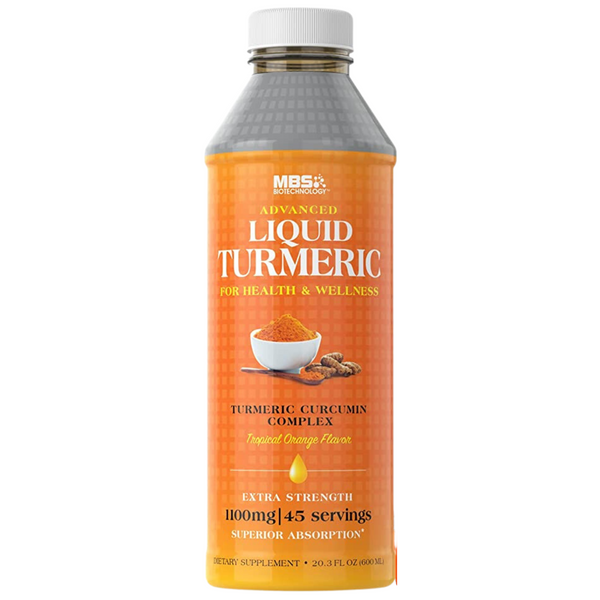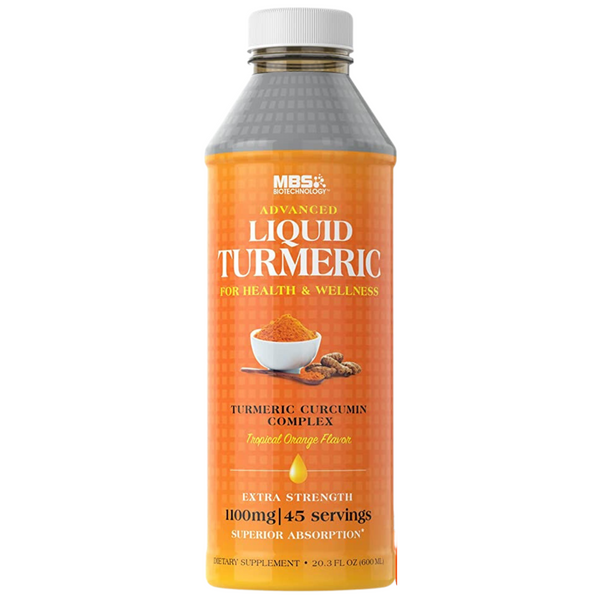
The Surprising Link Between Turmeric and Brain Health
When you think of turmeric, the first thing that might come to mind is its vibrant yellow-orange color and its use as a spice in Indian cuisine. But did you know that this powerful herb has been used for centuries in traditional medicine for its numerous health benefits? And in recent years, researchers have been studying the surprising link between turmeric and brain health.
It turns out that turmeric, specifically its active ingredient curcumin, may help improve memory, focus, and overall brain function. So how does this spice work its magic on our brains? Let's take a closer look.
- Reduces Inflammation
Chronic inflammation has been linked to a range of health issues, including cognitive decline and neurodegenerative diseases like Alzheimer's. The good news is that turmeric has powerful anti-inflammatory properties. Studies have shown that curcumin can help reduce inflammation in the body, including in the brain, which may help to protect against cognitive decline.
- Boosts Brain-Derived Neurotrophic Factor (BDNF)
BDNF is a protein that is essential for the growth and survival of brain cells. Low levels of BDNF have been linked to depression and other cognitive disorders. The good news is that curcumin has been shown to increase BDNF levels in the brain, which may help to improve brain function and protect against cognitive decline.
- Helps Remove Amyloid Plaques
Amyloid plaques are clumps of protein that can build up in the brain and are associated with Alzheimer's disease. Studies have shown that curcumin can help to break down these plaques, which may help to slow or prevent cognitive decline.
- Increases Blood Flow to the Brain
Good blood flow is essential for a healthy brain, as it delivers oxygen and nutrients to brain cells. Studies have shown that curcumin can help to increase blood flow to the brain, which may help to improve memory and overall brain function.
- Protects Against Oxidative Damage
Oxidative damage is caused by free radicals, which are unstable molecules that can damage cells and contribute to aging and disease. The good news is that turmeric has powerful antioxidant properties and can help to protect against oxidative damage in the brain.
- May Improve Mood
Curcumin has been shown to have antidepressant effects in some studies. One study found that curcumin was as effective as an antidepressant medication in treating depression in individuals with major depressive disorder.
- Helps Manage Stress
Chronic stress has been linked to cognitive decline and brain damage. Studies have shown that curcumin can help to reduce stress and improve mood, which may help to protect against cognitive decline.
So, as you can see, the link between turmeric and brain health is no joke. This powerful spice has numerous benefits for our brains, from reducing inflammation and protecting against oxidative damage to improving mood and managing stress.
One of the best ways to incorporate turmeric into your diet is by using it as a spice in your cooking. It pairs well with a variety of dishes, from curries to stir-fries to roasted vegetables. But if you're looking for a more convenient way to enjoy the benefits of turmeric, consider adding a liquid turmeric supplement to your daily routine. Liquid turmeric supplements offer superior absorption rates, allowing your body to absorb all of the incredible health benefits that turmeric has to offer.
So, what are you waiting for? Start incorporating turmeric into your diet today and experience the surprising link between turmeric and brain health for yourself!





























